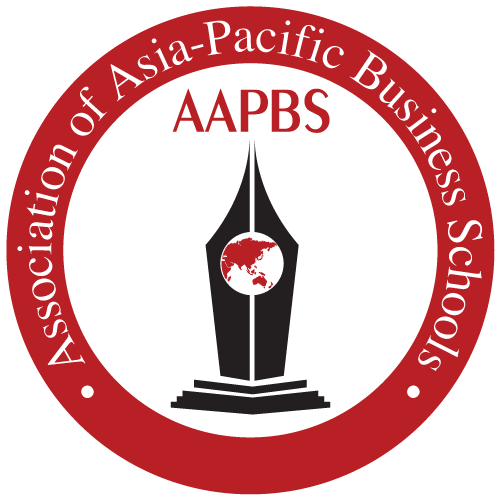About the Journal
Focus & Scope
Journal of Entrepreneurship & Business (JEB) publishes all quantitative and qualitative research articles and other scientific studies related to Accounting & Financial Management, E-Business Management, Entrepreneurship, Human Resources Management, Marketing Management, Operation & Supply Chain Management, and Strategic Management. The Editor's attempts at JEB could be the primary vehicle for exchanging ideas and research among business scholars. The JEB is an open-access journal published by the UBAYA School of Business, University of Surabaya Indonesia.
Publication Frequency
Journal of Entrepreneurship and Business (JEB) is published three times a year: February, June, and October.
Journal History:
They were first published in March 2020. The first accreditation in 2022 successfully obtained SINTA-3 for volume 1 edition 2 in 2020 and is valid until volume 6 edition 1 in 2025.
Section Policies
Articles

Peer Review Process
All manuscripts submitted to this journal must follow focus, scope, and author guidelines. The submitted manuscripts must address scientific merit or novelty appropriate to the focus and scope. All manuscripts must be free from plagiarism contents. All authors are suggested to use plagiarism detection software for similarity checking. Editors check the plagiarism detection of articles in this journal using Turnitin software.
The research article submitted to this journal will be peer–reviewed with double–blind review by at least 2 (two) or more expert reviewers. The reviewers give scientific valuable comments improving the contents of the manuscript.
The Editors will decide on article acceptance according to the reviewers' comments. Publication of accepted articles, including the sequence of published articles, will be made by Editor in Chief by considering the sequence of accepted date and geographical distribution of authors as well as thematic issues.
Open Access Policy
This journal provides immediate open access to its content on the principle that making research freely available to the public supports a greater global exchange of knowledge.
This is an open access journal, which means that all content is freely available without charge to the user or his/her institution. Users are allowed to read, download, copy, distribute, print, search, or link to the full texts of the articles, or use them for any other lawful purpose, without asking prior permission from the publisher or the author. This is in accordance with the the Budapest Open Access Initiative (BOAI) definition of open access.
Copyright Notice
Articles published in Journal of Entrepreneurship & Business are licensed under a Creative Commons Attribution 4.0 International (CC BY) license. You are free to copy, transform, or redistribute articles for any lawful purpose in any medium, provided you give appropriate credit to the original author(s) and the journal, link to the license, and indicate if changes were made.
Authors submitting to this journal agree to make their work freely available under the CC BY 4.0 license, ensuring broad dissemination and reuse. The full license details can be accessed at https://creativecommons.org/licenses/by/4.0/.
This ensures that they receive the maximum dissemination because there are no barriers to access. This license allows readers to disseminate and reuse the paper, but always requires them to grant the authors and the first publication full credit.
While JEB upholds ethical publishing standards, the responsibility for ensuring originality and compliance with copyright regulations lies with the authors. The journal is not liable for any legal claims related to the content of published articles.
For further inquiries, please contact the editorial team.
Ethics Statement & Publication Malpractice Statement
Our Publication Ethics are based on COPE’s Best Practice Guidelines for Journal Editors.
Duties of Authors
- Reporting Standards: Authors should present an accurate account of the original research performed and objectively discuss its significance. Researchers should honestly present their results without fabrication, falsification, or inappropriate data manipulation. A manuscript should contain sufficient detail and references to permit others to replicate the work. Fraudulent or knowingly inaccurate statements constitute unethical behavior and are unacceptable. Manuscripts should follow the submission guidelines of the journal.
- Originality and Plagiarism: Authors must ensure that they have written original work. The manuscript should not be submitted concurrently to more than one publication unless the editors have agreed to co-publication. Relevant previous work and publications, both by other researchers and the authors’ own, should be appropriately acknowledged and referenced. The primary literature should be cited where possible. Original wording taken directly from publications by other researchers should appear in quotation marks with the appropriate citations.
- Multiple, Redundant, or Concurrent Publications: The author should not generally submit the same manuscript to more than one journal concurrently. The author is also expected not to publish redundant manuscripts or manuscripts describing the same research in more than one journal. Submitting the same manuscript to more than one journal concurrently constitutes unacceptable publishing behavior. Multiple publications arising from a single research project should be identified as such, and the primary publication should be referenced
- Acknowledgment of Sources: Authors should acknowledge all data sources used in the research and cite publications that have influenced the nature of the reported work. Proper acknowledgment of the work of others must always be given.
- Authorship of the Paper: The authorship of research publications should accurately reflect individuals’ contributions to the work and its reporting. Authorship should be limited to those who have contributed significantly to the conception, design, execution, or interpretation of the reported study. Others who have made significant contributions must be listed as co-authors. In cases where major contributors are listed as authors, those who made less substantial or purely technical contributions to the research or the publication are listed in an acknowledgment section. Authors also ensure that all the authors have seen and agreed to the submitted version of the manuscript and their inclusion of names as co-authors.
- Disclosure and Conflicts of Interest: All authors should disclose in their manuscript any financial or other substantive conflicts of interest that might be construed to influence the results or interpretation of their manuscript. All sources of financial support for the project should be disclosed.
- Fundamental Errors in Published Works: If the author discovers a significant error or inaccuracy in the submitted manuscript, the author should promptly notify the journal editor or publisher and cooperate with the editor to retract or correct the paper.
- Hazards and Human or Animal Subjects: The author should identify in the manuscript if the work involves chemicals, procedures, or equipment that have any unusual hazards inherent in their use.
Duties of Editor
- Publication Decisions: Based on the review report of the editorial board, the editor can accept, reject, or request modifications to the manuscript. The validation of the work in question and its importance to researchers and readers must always drive such decisions. The editors may be guided by the policies of the journal's editorial board and constrained by such legal requirements as shall then be in force regarding libel, copyright infringement, and plagiarism. The editors may confer with other editors or reviewers in making this decision. Editors have to take responsibility for everything they publish and should have procedures and policies in place to ensure the quality of the material they publish and maintain the integrity of the published record.
- Review of Manuscripts: The editor must ensure that the editor for originality initially evaluates each manuscript. The editor should organize and use peer review fairly and wisely. Editors should explain their peer review processes in the information for authors and indicate which journal parts are peer-reviewed. The editor should use appropriate peer reviewers for papers considered for publication by selecting people with sufficient expertise and avoiding those with conflicts of interest.
- Fair Play: The editor must ensure that each manuscript received by the journal is reviewed for its intellectual content without regard to the sex, gender, race, religion, citizenship, etc., of the authors. An essential part of the responsibility to make fair and unbiased decisions is upholding the principle of editorial independence and integrity. Editors are in a powerful position to make publications decisions, making it very important that this process is as fair and unbiased as possible.
- Confidentiality: The editor must ensure that information regarding manuscripts submitted by the authors is confidential. Editors should critically assess any potential breaches of data protection and patient confidentiality. This includes requiring informed consent for the actual research presented and consent for publication where applicable.
- Disclosure and Conflicts of Interest: The editor of the Journal will not use unpublished materials disclosed in a submitted manuscript for his research without the author's written consent. Editors should not be involved in decisions about papers in which they have a conflict of interest
Duties of Reviewers
- Confidentiality: Information regarding manuscripts submitted by authors should be kept confidential and treated as privileged information. They must not be shown to or discussed with others except as authorized by the editor.
- Acknowledgment of Sources: Reviewers must ensure that authors have acknowledged all data sources used in the research. Reviewers should identify relevant published work that the authors have not cited. Any statement that an observation, derivation, or argument had been previously reported should be accompanied by the appropriate citation. The reviewers should notify the journal immediately if they come across any irregularities, have concerns about ethical aspects of the work, are aware of substantial similarity between the manuscript and a concurrent submission to another journal or a published article, or suspect that misconduct may have occurred during either the research or the writing and submission of the manuscript; reviewers should, however, keep their concerns confidential and not personally investigate further unless the journal asks for further information or advice.
- Standards of Objectivity: The submitted manuscript review must be done objectively, and the reviewers should express their views clearly with supporting arguments. The reviewers should follow journals’ instructions on the specific feedback required unless there are good reasons not to. The reviewers should be constructive in their reviews and provide feedback that will help the authors to improve their manuscript. The reviewer should make clear which suggested additional investigations are essential to support claims made in the manuscript under consideration and which will strengthen or extend the work
- Disclosure and Conflict of Interest: Privileged information or ideas obtained through peer review must be confidential and not used for personal advantage. Reviewers should not consider manuscripts with conflicts of interest resulting from competitive, collaborative, or other relationships or connections with any of the authors, companies, or institutions connected to the papers. In the case of a double-blind review, if they suspect the identity of the author(s) notify the journal if this knowledge raises any potential conflict of interest.
- Promptness: The reviewers should respond in a reasonable time frame. The reviewers only agree to review a manuscript if they are fairly confident they can return a review within the proposed or mutually agreed time frame, informing the journal promptly if they require an extension. Suppose a reviewer feels him/her can't complete the manuscript review within the stipulated time. In that case, this information must be communicated to the editor, so that the manuscript can be sent to another reviewer.
Conflicts of Interest
Authors are required to disclose all sources of institutional, private, and corporate financial support for their study. Authors are also required to disclose any potential conflicts of interest. An author's conflict of interest or information specifying the absence of conflicts of interest and the sources of funding for the research will be published under a separate heading entitled "Conflict of Interest.”











